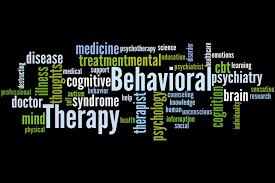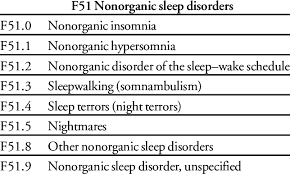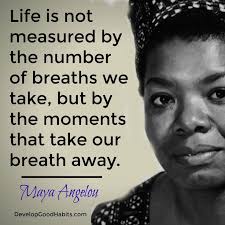Therapy: A Powerful Tool for Mental Health
Therapy is a powerful tool that can help individuals overcome mental health challenges, improve their relationships, and achieve personal growth. Despite the stigma that still surrounds therapy in some circles, seeking professional help for mental health concerns is becoming more accepted and mainstream.
There are many different types of therapy, each with its own unique approach and techniques. Some of the most common forms of therapy include cognitive-behavioral therapy (CBT), psychoanalytic therapy, humanistic therapy, and group therapy.
CBT is a popular form of therapy that focuses on changing negative thought patterns and behaviors. This type of therapy is often used to treat anxiety and depression. Psychoanalytic therapy is a more traditional form of talk therapy that aims to uncover unconscious thoughts and feelings to gain insight into behavior patterns. Humanistic therapies focus on self-exploration and personal growth, emphasizing the individual’s capacity for change.
Group therapy involves sessions with multiple individuals who share similar challenges or concerns. This type of therapy can be especially helpful for those who feel isolated or alone in their struggles.
Regardless of the type of therapy chosen, the benefits can be significant. Therapy provides a safe space for individuals to explore their emotions without fear of judgment or criticism. It gives them an opportunity to learn new coping skills and strategies for managing stressors in their lives.
Therapy can also improve relationships by helping individuals communicate more effectively with loved ones. By understanding one’s own needs and emotions better, it becomes easier to express oneself in a way that others can understand.
It’s important to note that there is no one-size-fits-all approach to mental health treatment. What works for one person may not work for another. It’s essential to find a therapist who feels like a good fit – someone who listens without judgment, provides guidance without pressure, and offers support throughout the process.
In conclusion, seeking help from a therapist is an act of courage and self-care. It’s a powerful tool for achieving mental wellness, personal growth, and improved relationships. If you’re struggling with mental health challenges, consider reaching out to a therapist to see how they can help you on your journey towards healing.
6 Benefits of Therapy for Better Mental Health and Relationships
- Improved mental health
- Improved relationships
- Increased self-awareness
- Coping skills development
- Problem solving skills development
- Supportive environment
7 Potential Drawbacks of Therapy: Exploring the Cost, Time Commitment, Stigma, and More
- Cost
- Time Commitment
- Stigma
- Not everyone is suited for therapy
- No guarantees
- Uncomfortable topics
- Vulnerability
Improved mental health
Improved Mental Health: How Therapy Can Help
Therapy is a powerful tool that can help individuals improve their mental health. It provides a safe and supportive environment for people to explore their emotions, thoughts, and behaviors. Through therapy, individuals can learn new coping skills and strategies to manage stressors in their lives, reducing symptoms of depression, anxiety, stress, and other mental illnesses.
Depression is a common mental health issue that affects millions of people worldwide. Therapy can be an effective treatment for depression by helping individuals identify negative thought patterns and develop more positive ways of thinking. This can lead to improved mood and a greater sense of well-being.
Anxiety is another common mental health concern that can be addressed through therapy. Therapists can teach relaxation techniques and coping strategies to help individuals manage symptoms of anxiety such as racing thoughts or panic attacks.
Stress is a part of everyday life, but chronic stress can take a toll on our mental health. Therapy can help individuals identify the sources of their stress and develop healthy ways to manage it. This may include setting boundaries, practicing self-care, or learning time-management skills.
Other mental illnesses such as bipolar disorder or schizophrenia may require more specialized treatments in addition to therapy. However, therapy can still be an important part of the treatment plan for these conditions by providing support and helping individuals cope with the challenges they face.
In conclusion, improved mental health is one of the many benefits of therapy. By providing a safe space for exploration and growth, therapy can help individuals better manage their mental health concerns and improve their overall quality of life. If you’re struggling with your mental health, consider reaching out to a therapist today to see how they can help you on your journey towards healing.
Improved relationships
Improved Relationships: The Power of Therapy
Therapy can be an incredibly powerful tool for improving relationships with family members and friends. By helping individuals understand their feelings and behaviors, therapy can provide valuable insights that lead to healthier communication and stronger connections.
One of the major benefits of therapy is that it offers a safe space to explore emotions without fear of judgment or criticism. This can be especially helpful when it comes to family dynamics, where tensions and conflicts may run deep. In therapy, individuals can learn to identify their own triggers and patterns, as well as those of others, leading to more effective communication and problem-solving.
Through therapy, individuals can also develop a greater sense of empathy and understanding towards others. By exploring one’s own emotions and experiences in a supportive environment, individuals may become more attuned to the needs and perspectives of those around them. This can lead to deeper connections with loved ones and a greater sense of overall satisfaction in relationships.
Moreover, therapy can help individuals break negative patterns that may have been impacting their relationships for years. By identifying unhealthy behaviors or communication styles, individuals can learn new skills for managing conflict or expressing themselves in a way that is more constructive.
In conclusion, improved relationships are just one of the many benefits that therapy has to offer. Through self-exploration and guidance from a trained therapist, individuals can develop healthier communication habits, deeper connections with loved ones, and an overall sense of well-being in their relationships. If you’re struggling with relationship issues or simply want to improve your communication skills, consider reaching out to a therapist today.
Increased self-awareness
Increased Self-Awareness: The Pro of Therapy
One of the most significant benefits of therapy is increased self-awareness. Through therapy, individuals can gain a greater understanding of themselves and how their behavior affects the world around them. This newfound self-awareness can lead to personal growth, improved relationships, and a more fulfilling life.
Therapy provides a safe and supportive environment where individuals can explore their thoughts, feelings, and behaviors without fear of judgment or criticism. With the help of a trained therapist, individuals can gain insight into their patterns of behavior and thought that may be holding them back from achieving their goals.
By understanding oneself better, it becomes easier to identify areas for improvement. Individuals can learn new coping skills and strategies for managing stressors in their lives. They can also gain a greater appreciation for their strengths and unique qualities.
Increased self-awareness can also lead to improved relationships with others. By understanding one’s own needs and emotions better, it becomes easier to express oneself in a way that others can understand. This leads to more effective communication and deeper connections with loved ones.
In conclusion, increased self-awareness is one of the most significant pros of therapy. Through therapy, individuals can gain insight into themselves and how they interact with the world around them. This newfound awareness leads to personal growth, improved relationships, and a more fulfilling life. If you’re looking to gain greater self-awareness in your life, consider seeking help from a trained therapist today.
Coping skills development
Coping Skills Development: How Therapy Can Help You Deal with Life’s Challenges
Life can be tough, and we all face difficult situations from time to time. Whether it’s dealing with a breakup, job loss, or the loss of a loved one, these challenges can take a toll on our mental health and well-being. This is where therapy comes in – it provides an opportunity for individuals to learn new coping strategies that will help them deal with difficult situations in life more effectively.
Therapy helps us identify our current coping mechanisms and teaches us new ones that are more effective. Coping skills can include techniques like mindfulness, deep breathing exercises, journaling, or even physical exercise. A therapist can help you develop these skills and teach you how to apply them in real-life situations.
By developing coping skills through therapy, individuals can learn how to manage their emotions better and respond to stressors in a more productive way. Coping skills also help prevent negative thoughts from spiraling out of control and leading to anxiety or depression.
In addition to learning new coping strategies, therapy also provides a safe space for individuals to practice using them. By role-playing different scenarios and practicing new techniques with a therapist’s guidance, individuals can gain confidence in their ability to handle challenging situations.
In conclusion, coping skills development is one of the many benefits of therapy. By learning new strategies for managing stressors in life effectively, individuals can improve their mental health and overall well-being. If you’re struggling with challenging situations or looking for ways to cope better with life’s ups and downs, consider reaching out to a therapist today.
Problem solving skills development
Problem-Solving Skills Development: A Key Benefit of Therapy
One of the most significant benefits of therapy is the development of problem-solving skills. By working with a trained therapist, individuals can learn how to identify problems in their lives and come up with effective solutions that work best for them.
Therapy provides a safe and supportive environment where individuals can explore their challenges without fear of judgment or criticism. Therapists use various techniques to help clients identify the root cause of their problems and develop strategies for addressing them.
Through therapy, individuals can learn how to think critically, evaluate different options, and make informed decisions. This process helps them become more self-aware and confident in their ability to handle difficult situations.
Problem-solving skills are essential for personal growth and development. They enable individuals to overcome obstacles and make positive changes in their lives. By learning how to solve problems effectively, people can improve their relationships, advance in their careers, and achieve their goals.
Therapy is not just about addressing mental health issues; it’s also about developing life skills that promote overall well-being. The ability to solve problems is a crucial life skill that everyone needs, regardless of age or background.
In conclusion, problem-solving skills development is a key benefit of therapy. Through therapy sessions, individuals can learn how to identify problems, develop strategies for solving them, and make positive changes in their lives. If you’re struggling with challenges in your life, consider seeking help from a trained therapist who can guide you towards developing effective problem-solving skills.
Supportive environment
Supportive Environment: How Therapy Provides a Safe Space for Personal Growth
One of the most significant benefits of therapy is the supportive environment it provides. A therapist creates a safe space for individuals to express themselves without fear of judgment or criticism from others. This allows them to explore any issues they may be facing without feeling alone or isolated in doing so.
Many people struggle with mental health challenges, but they may not feel comfortable discussing them with friends or family members. This can lead to feelings of isolation and loneliness, which can exacerbate existing mental health concerns. A therapist provides a non-judgmental space where individuals can share their thoughts and emotions freely, without fear of being misunderstood or criticized.
In this supportive environment, individuals can work through difficult emotions and experiences at their own pace. They can explore their feelings and thoughts in-depth, gaining insight into themselves and their behaviors. Over time, this process can lead to personal growth and positive change.
Therapists are trained professionals who have experience working with individuals from all walks of life. They are skilled at creating a safe space for their clients that allows them to feel comfortable and supported throughout the therapy process.
In conclusion, therapy provides a supportive environment where individuals can express themselves freely without fear of judgment or criticism from others. It creates a safe space where people can work through difficult emotions and experiences at their own pace, leading to personal growth and positive change over time. If you’re struggling with mental health concerns, consider reaching out to a therapist today to begin your journey towards healing in a supportive environment.
Cost
Cost: A Major Con of Therapy
While therapy can be a powerful tool for improving mental health and well-being, it’s important to acknowledge that cost can be a significant barrier for many people. Therapy can be expensive, and not everyone has access to insurance coverage that will cover the costs.
The cost of therapy can vary depending on the type of therapy, the location, and the therapist’s level of experience. Some therapists charge hundreds of dollars per session, which can quickly add up if you need to attend multiple sessions per month.
For those without insurance coverage, paying out-of-pocket for therapy can be a significant financial burden. This can lead to individuals avoiding or delaying seeking help for mental health concerns because they simply cannot afford it.
Even those with insurance coverage may face challenges. Many insurance plans have limited coverage for mental health services or require high co-pays or deductibles. This means that even with insurance, individuals may still have to pay a significant portion of the costs out-of-pocket.
It’s important to note that some therapists offer sliding-scale fees based on income, which can make therapy more affordable for those who may not otherwise be able to afford it. Additionally, some employers offer employee assistance programs (EAPs) that provide free or low-cost counseling services as part of their benefits package.
In conclusion, while therapy can be an effective tool for improving mental health and well-being, cost is a major con that cannot be ignored. It’s essential to explore all options for financial assistance when seeking help for mental health concerns. If cost is a barrier, consider reaching out to therapists who offer sliding-scale fees or exploring employer-provided resources like EAPs. Everyone deserves access to quality mental health care regardless of their financial situation.
Time Commitment
One of the downsides of therapy is the time commitment it requires. Attending regular therapy sessions and completing additional assignments or activities can be a significant investment of time. This can be challenging for individuals who have busy schedules or other commitments.
However, it’s essential to remember that therapy is an investment in oneself. Just like going to the gym or eating healthy, therapy requires a commitment to self-care and personal growth. It’s important to prioritize mental health and make time for therapy sessions, even if it means rearranging other commitments or responsibilities.
Additionally, many therapists offer flexible scheduling options, such as evening or weekend appointments, to accommodate busy schedules. Some therapists also offer teletherapy options, which allow individuals to attend sessions from the comfort of their own homes.
While the time commitment required for therapy may seem daunting at first, it’s important to remember that the benefits can be life-changing. Therapy can help individuals overcome mental health challenges, improve relationships, and achieve personal growth. It provides a safe space for individuals to explore their emotions without fear of judgment or criticism.
In conclusion, while the time commitment required for therapy may be a con, it’s important to prioritize mental health and make time for self-care. The benefits of therapy are well worth the investment of time and effort required. If you’re struggling with mental health challenges, consider reaching out to a therapist today to see how they can help you on your journey towards healing.
Stigma
Stigma: A Barrier to Mental Health Treatment
Despite the growing acceptance of therapy as a valuable tool for mental health, there is still a stigma attached to seeking help. This stigma can prevent people from accessing the care they need, leading to untreated mental health challenges and potentially more severe consequences.
The stigma surrounding mental health treatment can take many forms. It may be rooted in cultural or societal beliefs that view seeking help as a sign of weakness or failure. It may also stem from fear of judgment or discrimination, which can be especially prevalent in certain communities.
Whatever the source, this stigma can have real-world consequences for those who need help. People may avoid seeking treatment out of fear of being labeled “crazy” or “weak.” They may also worry about how their family, friends, or coworkers will perceive them if they seek help.
This is particularly concerning given the prevalence of mental health challenges in our society. According to the National Alliance on Mental Illness (NAMI), one in five adults in the United States experiences mental illness each year. Yet only 43% of those individuals receive treatment.
Breaking down the stigma around therapy and mental health treatment is essential for improving access to care. This means challenging negative beliefs and stereotypes about mental illness and advocating for more resources and support for those who need it.
It also means prioritizing self-care and taking steps to manage our own mental health challenges. By being open about our struggles and seeking help when needed, we can help reduce the shame and judgment that too often prevent others from accessing care.
In conclusion, stigma remains a significant barrier to mental health treatment for many individuals. By working together to break down these barriers through education, advocacy, and personal example, we can create a society that values and supports everyone’s right to good mental health.
Not everyone is suited for therapy
Not Everyone is Suited for Therapy: The Con of Traditional Techniques
While therapy can be a powerful tool for improving mental health and personal growth, it’s important to recognize that not everyone is suited for traditional therapeutic techniques or approaches. For some individuals, therapy may not be the best fit, which can lead to feelings of frustration and discouragement.
There are many reasons why someone may not benefit from traditional therapy. For example, some individuals may struggle with opening up to a therapist or may find it difficult to connect with them on a personal level. Others may feel uncomfortable with the idea of talking about their emotions or past experiences.
Additionally, some people may have tried therapy in the past and found that it didn’t work for them. This can be discouraging and make them hesitant to try again.
It’s important to remember that there are many different types of therapy available, and what works for one person may not work for another. If traditional techniques aren’t working, it may be worth exploring alternative approaches such as art therapy, music therapy, or mindfulness-based therapies.
It’s also essential to find a therapist who feels like a good fit – someone who listens without judgment, provides guidance without pressure, and offers support throughout the process. If you’re struggling with finding the right therapist or approach for you, don’t give up hope. Keep searching until you find what works best for your individual needs and preferences.
In conclusion, while therapy can be an effective tool for improving mental health and personal growth, it’s important to recognize that not everyone is suited for traditional therapeutic techniques or approaches. It’s essential to explore different options until you find what works best for your individual needs and preferences.
No guarantees
No Guarantees: The Reality of Therapy
Therapy is a powerful tool for improving mental health, but it’s important to understand that there are no guarantees that it will work for everyone. It’s essential to have realistic expectations about the process and outcome of therapy before starting treatment.
There are many factors that can impact the effectiveness of therapy, including the individual’s willingness to participate in the process and their compatibility with the therapist. Some individuals may require more time or a different approach than others.
It’s also important to recognize that therapy is not a quick fix. It takes time and effort to see results, and progress may be slow at times. However, with patience and commitment, therapy can be an effective way to improve mental health and overall well-being.
Despite the lack of guarantees, it’s important not to let fear or uncertainty prevent you from seeking help. If you’re struggling with mental health challenges, consider reaching out to a therapist who can help guide you through the process.
Remember that therapy is a collaborative effort between you and your therapist. Together, you can work towards achieving your goals and improving your mental health. While there are no guarantees of success, taking the first step towards therapy is often the hardest but most important step towards healing.
Uncomfortable topics
Uncomfortable Topics in Therapy: Navigating Difficult Conversations
Therapy can be an incredibly valuable tool for improving mental health and achieving personal growth. However, discussing uncomfortable or difficult topics with a therapist can be challenging and emotionally draining at times.
This is especially true when dealing with traumatic experiences or deep-rooted issues that have been suppressed for many years. It’s natural to feel uncomfortable or even scared when confronting painful memories or emotions.
However, it’s important to remember that therapy is a safe environment designed to support individuals through these difficult conversations. Therapists are trained professionals who can help navigate these conversations with sensitivity and care.
It’s also important to remember that therapy is a process, and progress may not happen overnight. It’s okay to take breaks from certain topics if they become too overwhelming, and it’s okay to move at a pace that feels comfortable.
Ultimately, the discomfort of discussing difficult topics in therapy is outweighed by the benefits of improved mental health and personal growth. By confronting these issues head-on in a safe environment, individuals can gain a deeper understanding of themselves and find healing from past traumas.
If you’re feeling hesitant about discussing uncomfortable topics in therapy, know that you’re not alone. But also know that there are resources available to support you through this process. Don’t be afraid to reach out to a therapist for guidance and support on your journey towards healing.
Vulnerability
Vulnerability: A Con of Therapy
Therapy is a powerful tool for mental health, but it’s not without its challenges. One of the most significant cons of therapy is vulnerability. Opening up to someone else about personal issues requires trust, vulnerability, and courage; this can be difficult for some people who are used to keeping their feelings bottled up inside themselves.
It’s understandable that some people may feel uncomfortable sharing their innermost thoughts and emotions with a stranger. It can be challenging to let down one’s guard and expose vulnerabilities, especially if they’ve been hurt or betrayed in the past.
However, it’s important to remember that therapists are trained professionals who are bound by ethical guidelines to maintain confidentiality and provide a safe space for clients. They’re not there to judge or criticize; they’re there to listen, support, and guide clients towards healing.
It’s also worth noting that vulnerability is an essential aspect of personal growth. By opening up and being vulnerable in therapy, individuals can gain insight into themselves and their emotions. This can lead to increased self-awareness, improved relationships with others, and a greater sense of overall well-being.
If the idea of vulnerability in therapy feels overwhelming or scary, it may be helpful to start small. Sharing something small with a therapist can help build trust over time. It’s also important to find a therapist who feels like a good fit – someone who listens without judgment and provides support throughout the process.
In conclusion, vulnerability is a con of therapy that should not be overlooked. However, it’s worth remembering that opening up and being vulnerable can lead to significant personal growth and healing. With the right therapist and approach, therapy can be an incredibly rewarding experience for those willing to take the leap of faith towards vulnerability.




